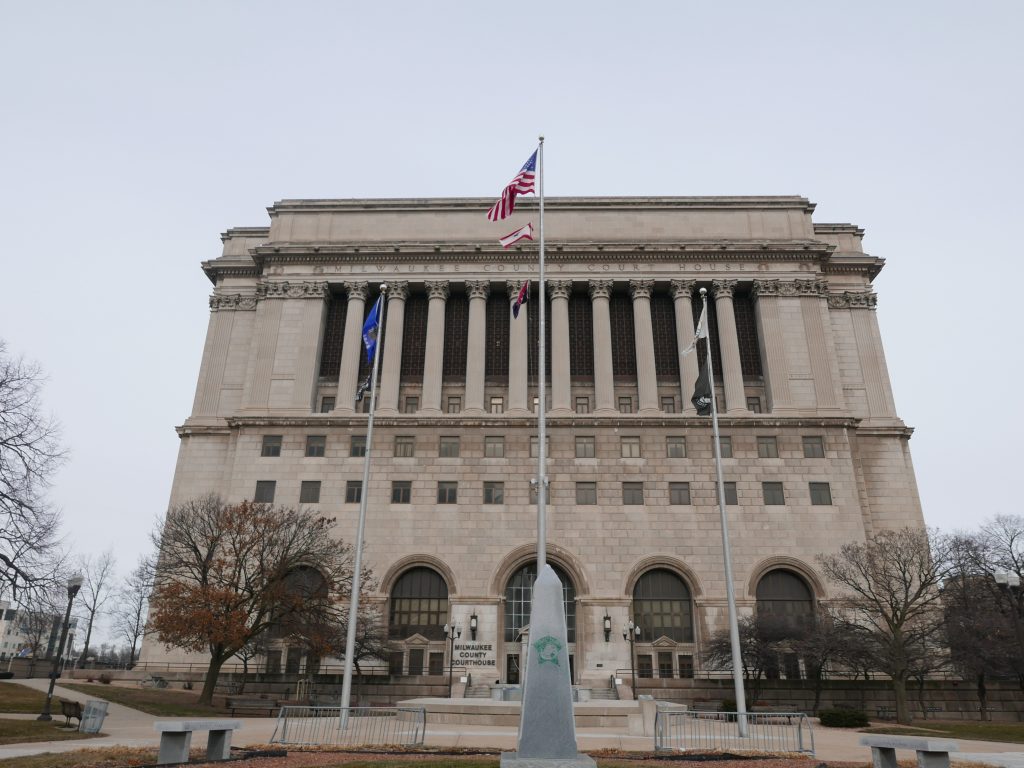Resolution Calls For More State Aid, Local Autonomy
County board proposal demands hike in state aid with no strings attached.
The Milwaukee County Board will consider a resolution in May advocating for state increases to funding for local governments, but also that the funding not be tied to restrictions on how they budget.
The resolution, authored by Sup. Ryan Clancy in March, is co-sponsored by Supervisors Felesia Martin, Juan Miguel Martinez, Steven Shea and Priscilla E. Coggs-Jones.
The operative clause in the legislation states that the “Milwaukee County Board of Supervisors hereby supports increasing shared revenue to counties and municipalities to fund local services with full autonomy and without restrictions from the State of Wisconsin.”
Clancy’s resolution was drafted before Wisconsin State Assembly Speaker Robin Vos announced forthcoming legislation increasing shared revenue for counties and municipalities. That legislation would provide the county with a 0.375% increase to its 0.5% sales tax. But sources have told Urban Milwaukee, and Vos confirmed, that the legislation also comes with a number of strings attached. Most affect the City of Milwaukee — like changes to its Fire and Police Commission authority. But requirements for maintaining law enforcement budgets at or above current levels and a prohibition on local non-binding referendums would directly impact the county.
At a meeting of the full board on April 20, Sup. Clancy, while speaking on proposals relating to staffing in the Milwaukee County Sheriff’s Office (MCSO), told his colleagues that Republicans in the state Legislature are working on a bill to provide the county additional revenue, but also tie its hands when it comes to issues like spending on law enforcement. “We would be unable to reduce it for any year in the future,” said Clancy, who is also a state representative.
Clancy has sought to cut the MCSO budget every year he’s served on the county board.
“This is legislation that would provide us some money, but would then take away our autonomy to spend those dollars on the way that we see fit,” he said. “We would be beholden essentially to many folks from across the state that don’t have a good sense of what Milwaukee County residents need [and] what Milwaukee County residents have told us that they want us to spend their dollars on.”
Reached by Urban Milwaukee Wednesday, April 26, Clancy said his county-level resolution is an attempt, if passed by the full board, to communicate local policymakers’ desire for budgetary autonomy.
“I understand the need for increased shared revenue and how difficult it is to meet the needs of county residents with underfunded local government,” Clancy told Urban Milwaukee, adding that local “autonomy” is critical to running the government “how our residents see fit.”
Clancy’s resolution notes, “Milwaukee County understands the county’s needs more so than members of the state legislature, thereby requiring full autonomy to implement financial decisions impacting the county.”
The county and the city are both facing a fiscal crisis in the coming years and County Executive David Crowley and Mayor Cavalier Johnson have been leading a coalition advocating for increased aid to local governments through the state’s shared revenue system, as well as an increase in the county’s local sales tax from 0.5% to 1.5%. In his 2023-2025 budget proposal, Gov. Tony Evers included that 1% sales tax increase, which would be split 50/50 by the county and the City of Milwaukee. Such an increase would generate an estimated $180 million in the first year.
The deal on the table in the state Assembly is markedly different from Evers’ proposal and carries with it a number of restrictions and requirements. But both Crowley and Johnson, speaking at a press conference with Vos, said that negotiations are not over and the deal may yet change. Vos said he thought the deal was “98%” there, with only a few minor points of disagreement remaining.
The county has for more than a decade struggled against a structural budget deficit created by an imbalance between the revenue and expenses. While there is more than one contributing factor, one of the major causes of the deficit is a freeze on state aid to the county for more than a decade. Each year annual inflation pushed the cost to maintain the government higher while the revenue available to policymakers stayed the same. In 2027, it faces what is regularly referred to as a “fiscal cliff,” when budget projections estimate the county will run out of local revenue for services that are not mandated by the state — like public transit and parks.
The latest projection by the Office of the Comptroller estimates that between 2024 and 2028 the county will fall short by $109.5 million of money needed to maintain current services.
More about the Local Government Fiscal Crisis
- Mayor Johnson’s Budget Hikes Fees, Taxes In 2025, Maintains Services - Jeramey Jannene - Sep 24th, 2024
- New Milwaukee Sales Tax Collections Slow, But Comptroller Isn’t Panicking - Jeramey Jannene - Jun 28th, 2024
- Milwaukee’s Credit Rating Upgraded To A+ - Jeramey Jannene - May 13th, 2024
- City Hall: Sales Tax Helps Fire Department Add Paramedics, Fire Engine - Jeramey Jannene - Jan 8th, 2024
- New Study Analyzes Ways City, County Could Share Services, Save Money - Jeramey Jannene - Nov 17th, 2023
- New Third-Party Study Suggests How Milwaukee Could Save Millions - Jeramey Jannene - Nov 17th, 2023
- Murphy’s Law: How David Crowley Led on Sales Tax - Bruce Murphy - Aug 23rd, 2023
- MKE County: Supervisors Engage in the Great Sales Tax Debate - Graham Kilmer - Jul 28th, 2023
- MKE County: County Board Approves Sales Tax - Graham Kilmer - Jul 27th, 2023
- County Executive David Crowley Celebrates County Board Vote to Secure Fiscal Future and Preserve Critical Services for Most Vulnerable Residents - County Executive David Crowley - Jul 27th, 2023
Read more about Local Government Fiscal Crisis here
Political Contributions Tracker
Displaying political contributions between people mentioned in this story. Learn more.
- March 23, 2016 - Cavalier Johnson received $100 from Felesia Martin
- January 5, 2016 - Cavalier Johnson received $200 from Felesia Martin
- December 17, 2015 - David Crowley received $50 from Felesia Martin
- August 13, 2015 - Cavalier Johnson received $25 from David Crowley

























